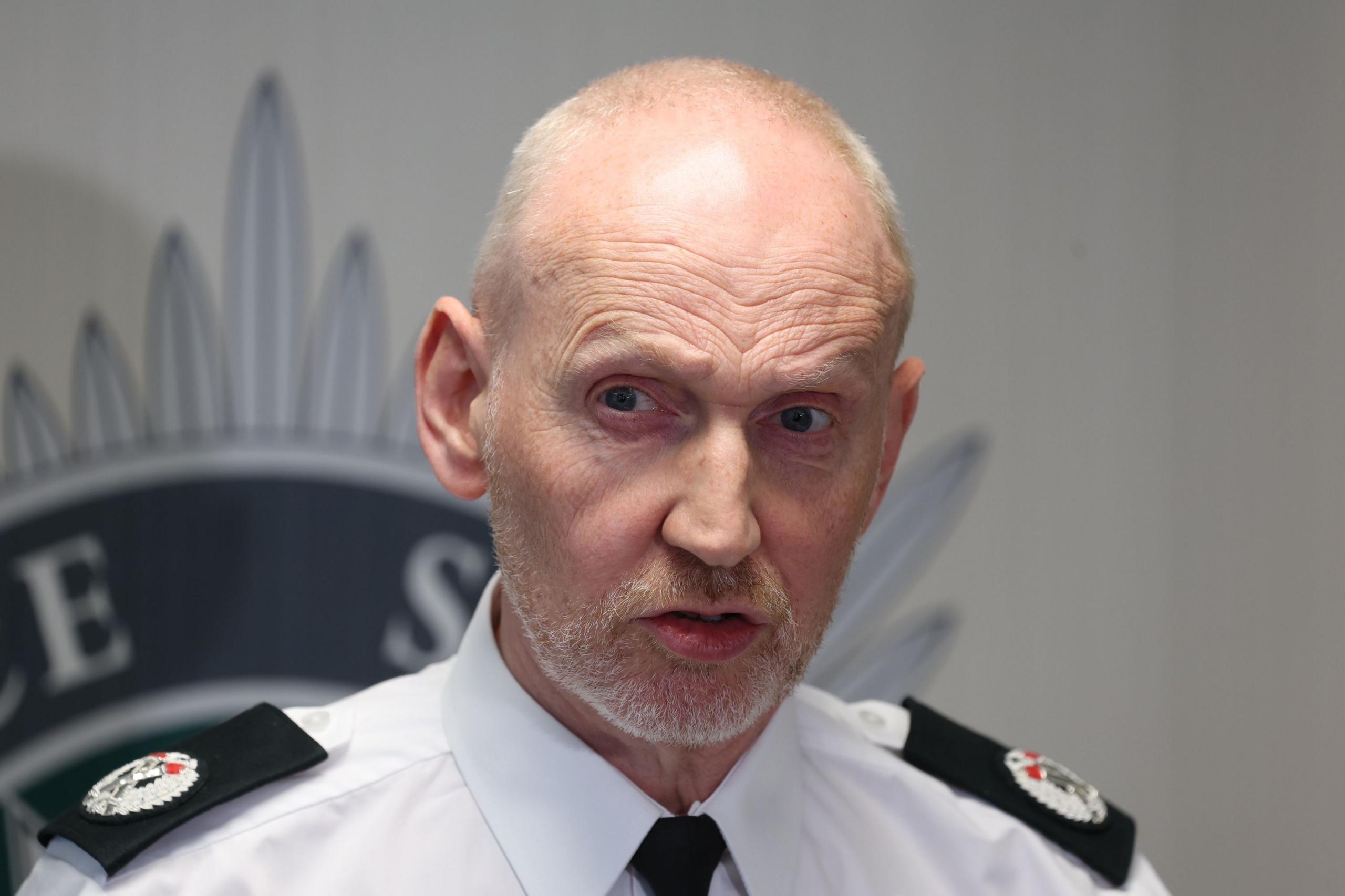Violence needs 'zero tolerance approach' - NI leaders
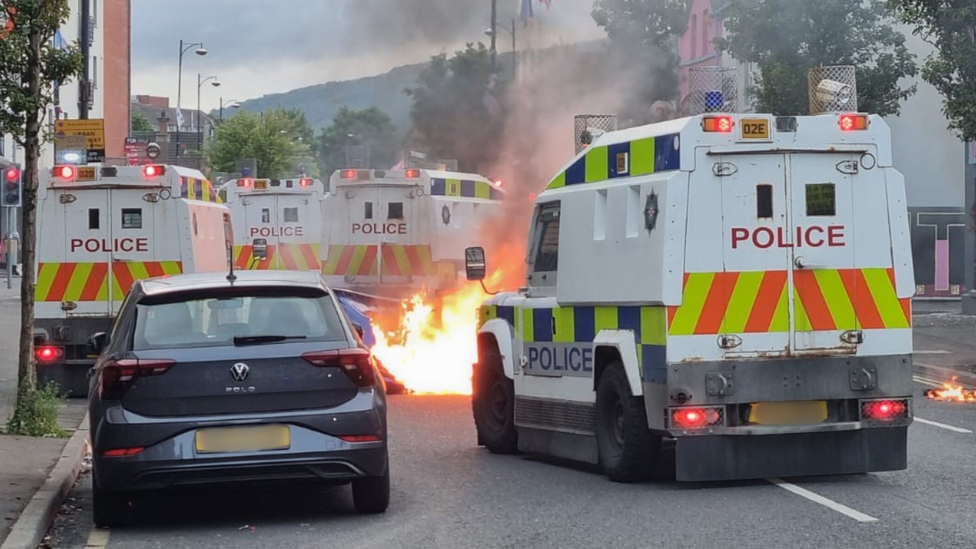
The Northern Ireland Assembly is being recalled on Thursday in response to the disorder
- Published
There must be a "zero tolerance approach" in response to violence which erupted in Belfast over the weekend, the first and deputy first ministers have said.
A cafe was set alight and a number of businesses were attacked after an anti-immigration protest which took place in the city on Saturday.
Earlier, Justice Minister Naomi Long defended the Police Service of Northern Ireland's (PSNI) response to the "challenging situation" at the weekend.
Assembly members are also being recalled from their summer break on Thursday to discuss the weekend's disorder.
On Monday evening, police asked the public to avoid the Sandy Row/Donegall Road area due to further disorder.
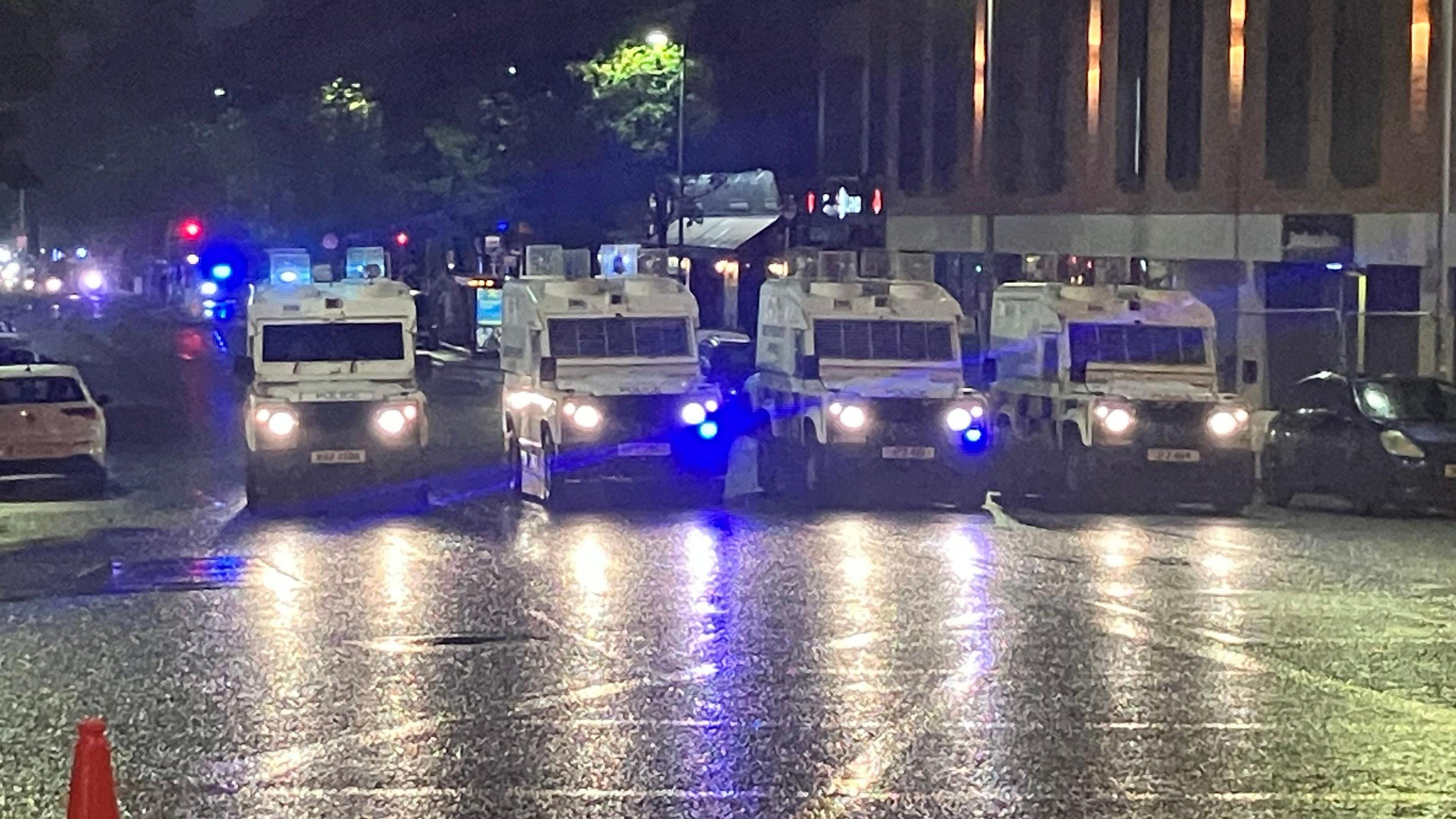
There was a large police presence in south Belfast on Monday evening
Earlier, the first and deputy first ministers spoke to PSNI chief Constable Jon Boutcher about Saturday’s violence.
After the phone call, Michelle O’Neill and Emma Little-Pengelly said "there is no justification for racism or for the violence and intimidation that occurred on our streets on Saturday".
They added they offered their full support to the chief constable and asked for those with information to contact police.
“There must be a zero tolerance approach to racism and wanton destruction," the statement continued.
“Nobody should have to live in fear or threat of violence.”
'No further scenes like these'
Some of the victims questioned the effectiveness of the policing operation after crowds involved in the city centre protest were able to move into streets in south Belfast where they attacked businesses.
Ms Long said the PSNI was effective in stopping people making it to the Belfast Islamic Centre on University Road.
But she added the violence at other sites was “sporadic” and "harder for police to keep on top of".
"We cannot have further scenes like this on the streets of this city," she added.
The justice minister said a Stormont recall is important as "political leadership has to be given, and we are the people who should be giving that leadership".
Four men, aged 53, 46, 38 and 34, have appeared in court charged with different offences linked to the disorder.
'Upsetting and infuriating'
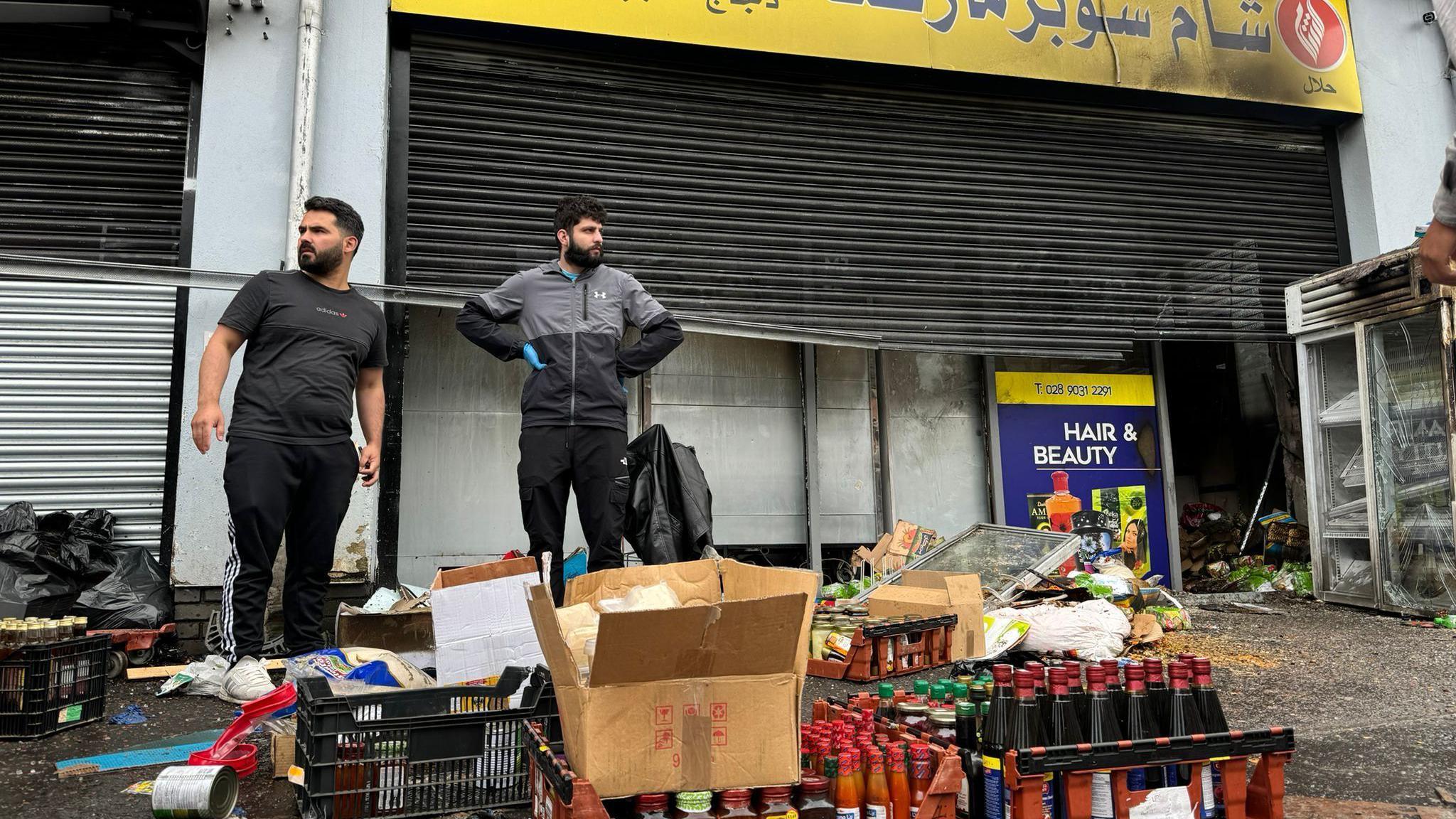
Some businesses were badly damaged
Some Belfast business owners “have seen their entire livelihood wiped out in one night of sickening violence”, Ms Long said.
The Alliance leader accepted that some people had attended the protest because they had genuine concerns about immigration, but she accused others of being “intent on creating mayhem”.
Saturday’s scenes had caused “irreparable” damage to the city’s reputation and racially-motivated violence would make it more difficult to recruit overseas workers to staff the health service, she continued.
At a special Belfast City Council meeting on Monday, councillors passed a motion about providing financial support to businesses damaged during the disorder.
The motion calls for the council to establish a programme of financial assistance for those "impacted by racist criminal attacks".
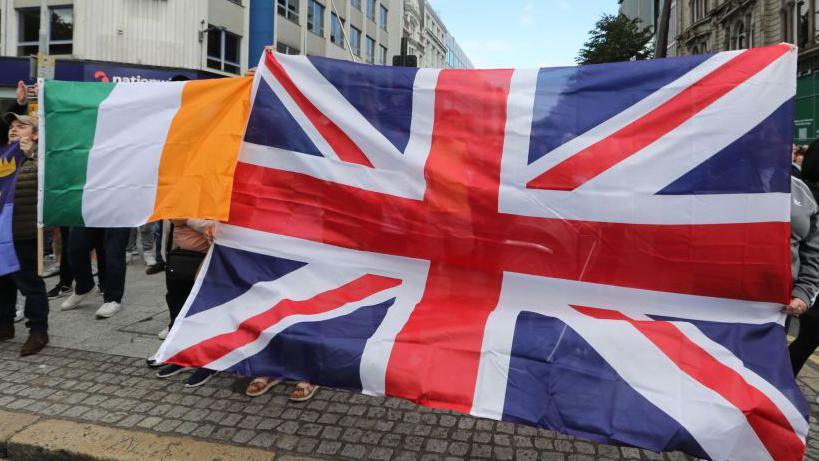
Union flags and Irish tricolours were flown during a protest earlier in the day on Saturday
After the protest outside the city hall on Saturday, some anti-immigration protesters attempted to march to the Belfast Islamic Centre in south Belfast
Kashif Akram, a member of the executive committee for Belfast Islamic Centre, said the building itself was “well protected” but the community and shops in the area were “not safe at all”.
Mr Akram said the Islamic Centre has received an “unbelievable” amount of messages over the weekend.
“The fear in a lot of them: ‘Should we be opening up today, should we be going to work, should we be leaving home?’
"Especially in this day and age, for someone having a fear for their life, their livelihood, their income, it’s not acceptable."
'Nipped in the bud'
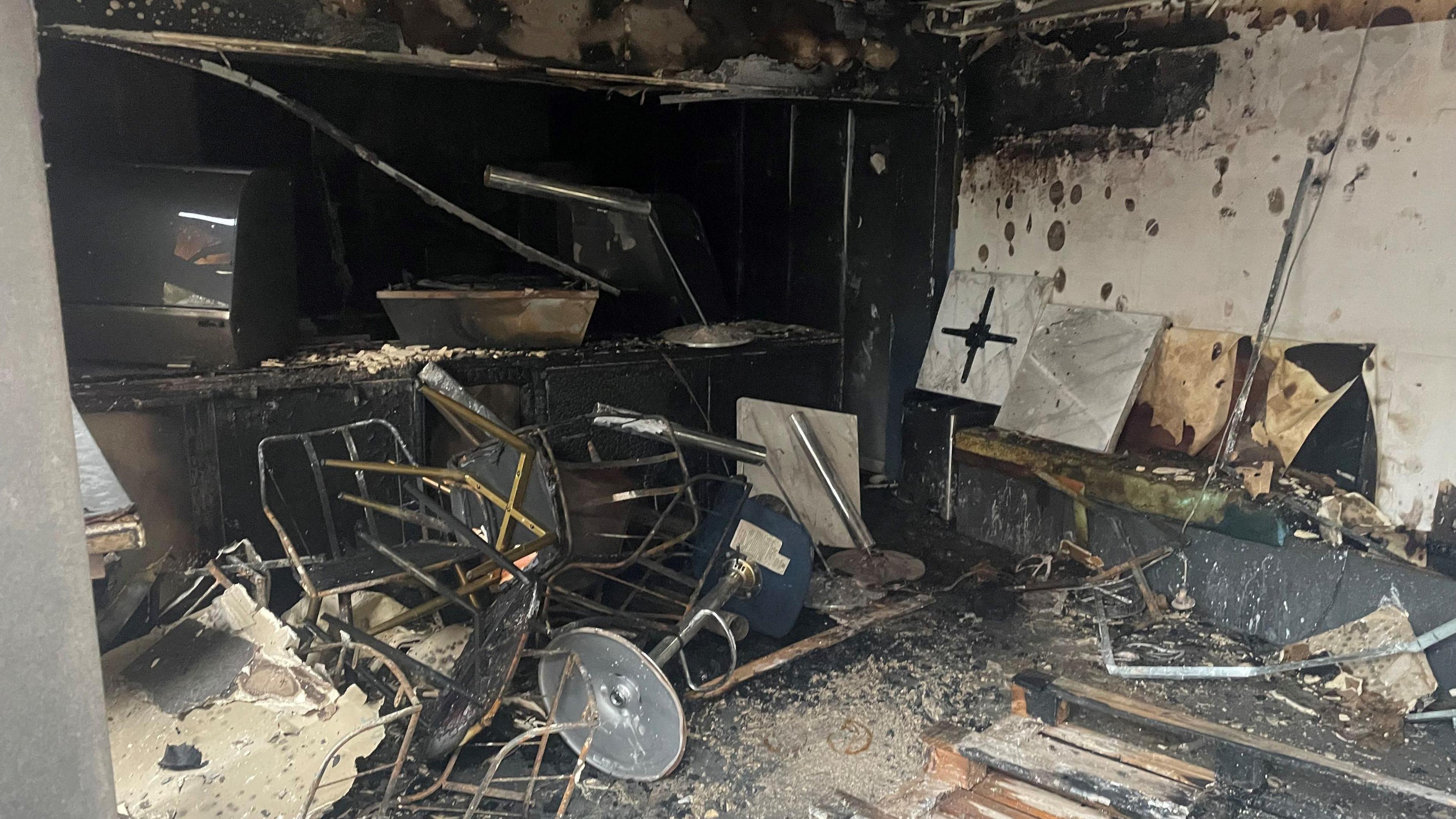
A cafe on the Donegall Road in south Belfast which was destroyed after it was set alight following disorder
“Despite all the assurances from PSNI leadership in the run up to Saturday’s mobilisations of what looked like far-right thugs, they were simply allowed to run free on the streets of Belfast," Mr Akram added.
"The inevitable outcome you’ve seen on the route – people were verbally abused, there was racist comments being made, people were physically attacked, you’ve seen the state of some of the shops.”
He said plans for an upcoming rally “needs to be stopped”.
“It’s organised crime, it’s racism and it needs to be nipped in the bud. It’s the first time in a long time I’ve felt fearful for my children leaving the house on a Saturday afternoon to enjoy themselves and it needs to be addressed.”
Police condemn violence and disorder on streets of Belfast
- Published4 August 2024
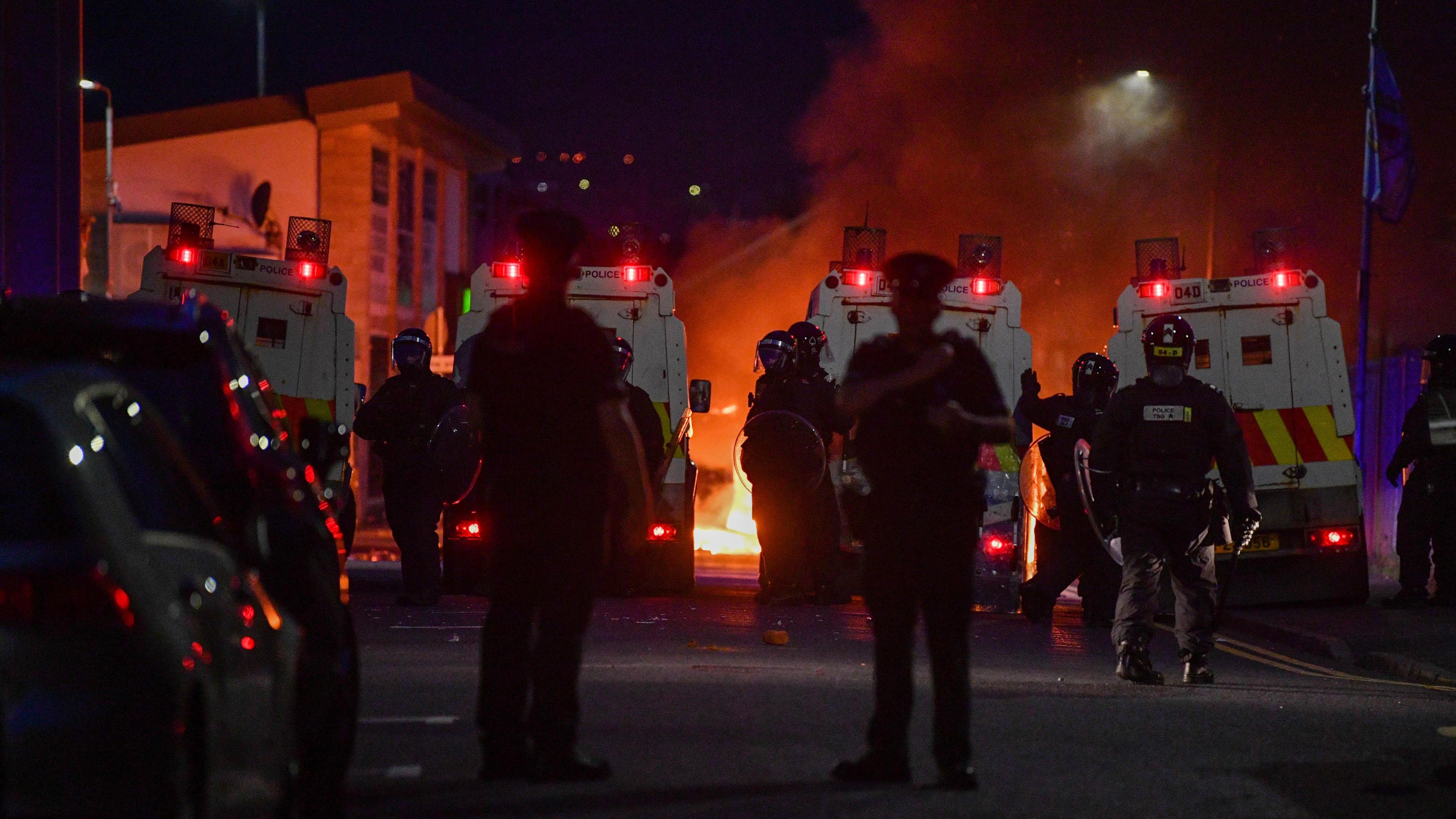
Members of the public were asked to avoid Donegall Road and Sandy Row
Matthew O’Toole, from the SDLP, attended a counter-demonstration against the anti-immigration protest.
He said the violent scenes witnessed in Belfast "can't be allowed to happen again".
He described the attacks on south Belfast businesses as “a violation of a community that is proudly diverse”.
“To think that a group of people with nothing but hate on their minds were allowed to rampage through that area is profoundly upsetting and infuriating and we need to ensure nothing like that ever happens again,” he said.
Democratic Unionist Party policing board member Trevor Clarke said the protests resulted from a "build-up" of frustrations and many had expressed concern to his constituency office.
However, he said: "There’s a difference between peaceful protest and the violence we have seen. Violence is not the way to resolve this."
'Appalling'
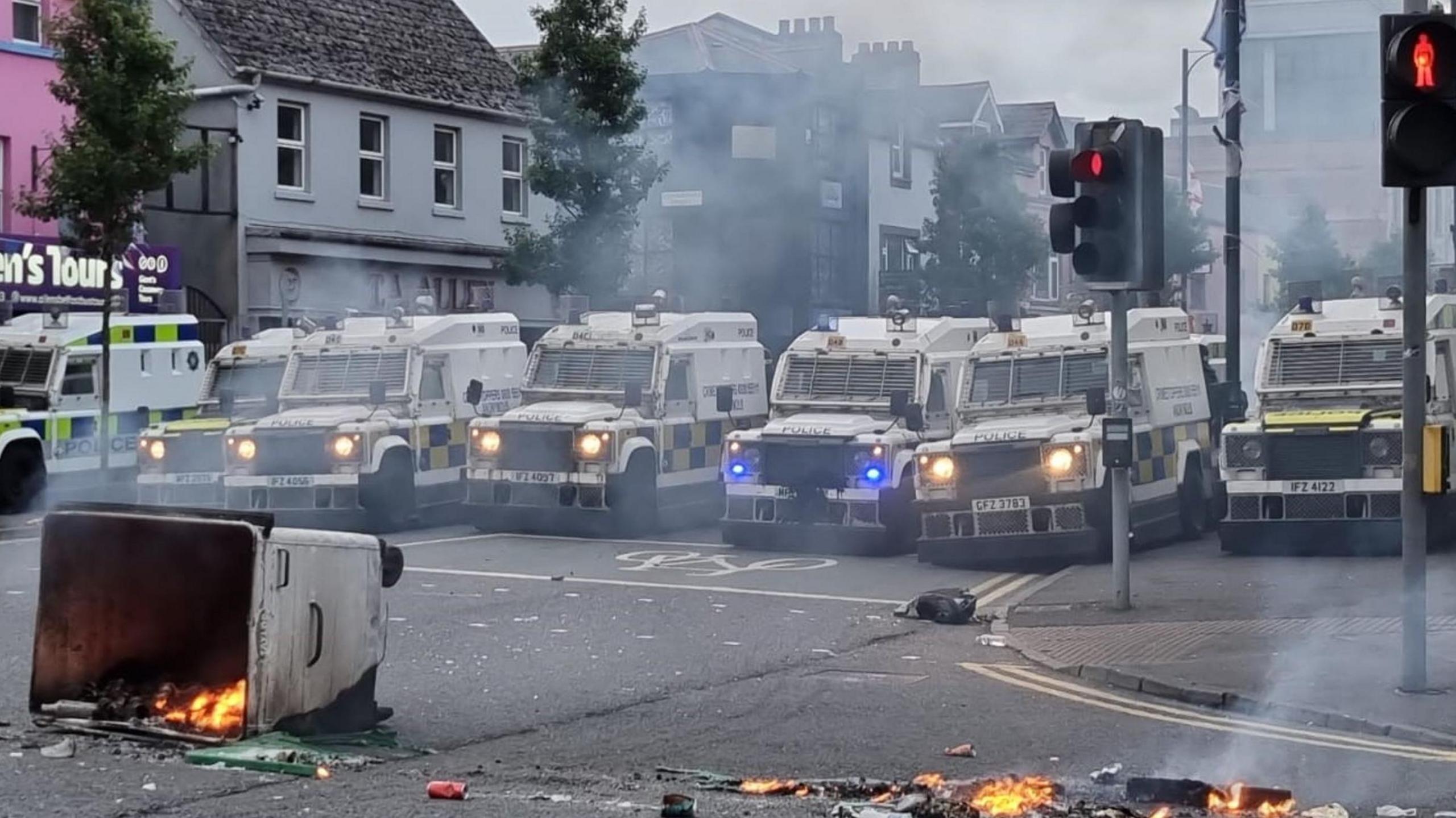
PSNI officers manned road blocks in Belfast
Ulster Unionist Party (UUP) leader Doug Beattie said the violence was “appalling”.
“It was quite clear there were people who were whipped up on social media, and this is on national social media I have to say, not just in Northern Ireland but right across the United Kingdom," he added.
Mr Beattie said some of the people involved had come out “spoiling for a fight”.
The UUP leader said the police should not only track down those involved in the rioting, but they should also go after the people who “incited this violence”.
He added that society needs to have a “grown-up, adult conversation” about concerns about immigration, but he claimed those responsible for the rioting were not interested in having that discussion.
Loyalist activist Jamie Bryson, who is part of the Unionist Voice group and attended a protest in Bangor, condemned the violence that took place in Belfast.
"People have genuine concerns, but I'm not sure if many people who turned up with masks on, intent on violence have any genuine concerns," he said.
"I think those who are intent on violence, on attacking people are an absolute disgrace to the community.
"Those who were waving union flags and giving Nazi salutes need to have a look at themselves."
Mr Bryson also appealed to young people "not to be whipped up by anonymous people online".
‘Army of police officers’
The National Police Chiefs' Council, have said 378 arrests have been made over the past week in relation to the unrest across the UK.
At the weekend there was unrest in Hull, Liverpool, Bristol, Manchester, Stoke-on-Trent, Blackpool, as well as Belfast, with missiles thrown, shops looted and police attacked in some places. Other smaller demonstrations elsewhere did not turn violent.
Following an emergency an emergency Cobra meeting in London to discuss the violence, the Prime Minister Sir Keir Starmer said a number of actions were agreed, including having a "standing army" of specialist officers to deal with incidents where needed.
It was also agreed, the prime minister said, that criminal law must apply online as well as offline and he expects people committing offences on the internet to be treated the same as anyone else.
- Published3 August 2024
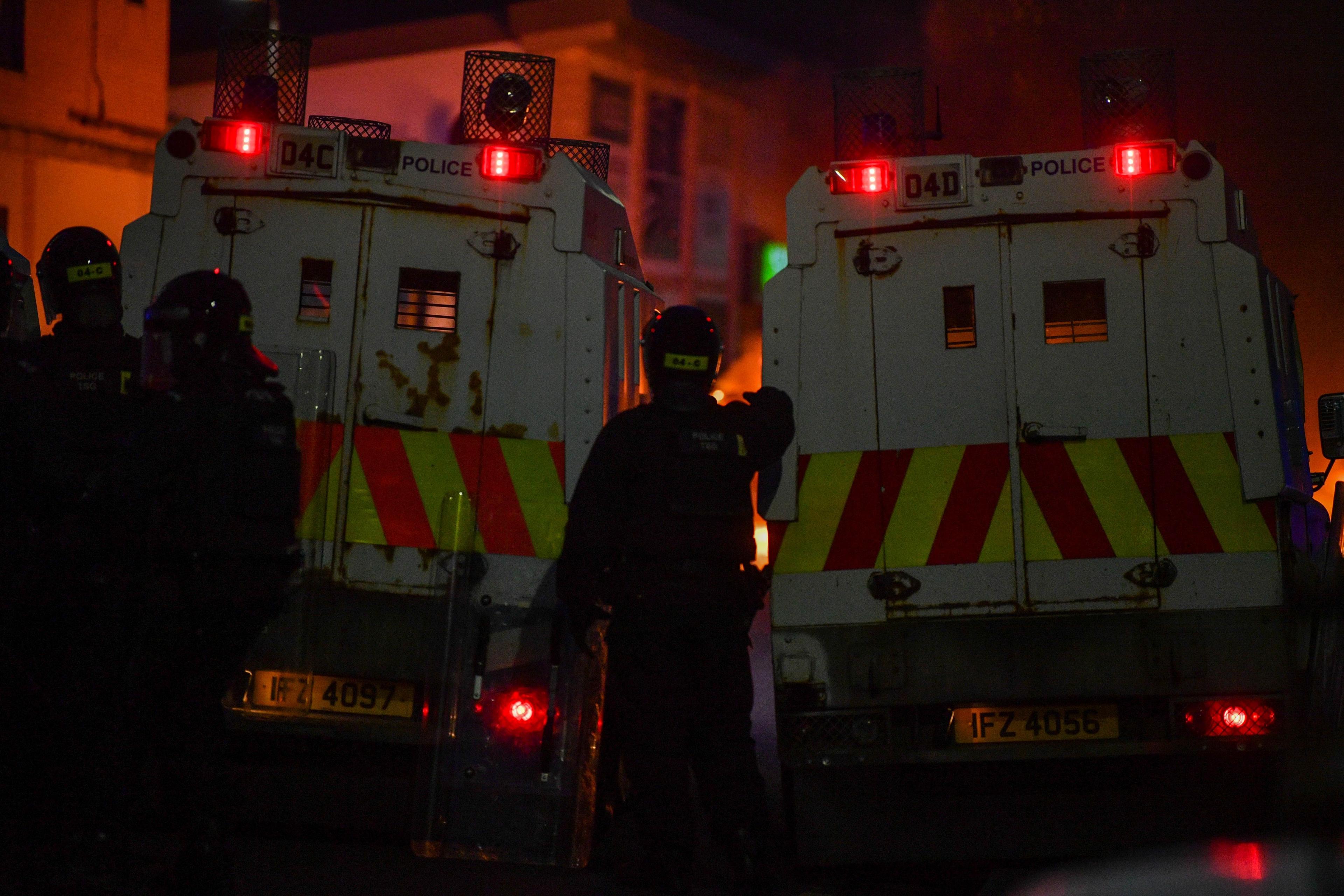
- Published5 August 2024
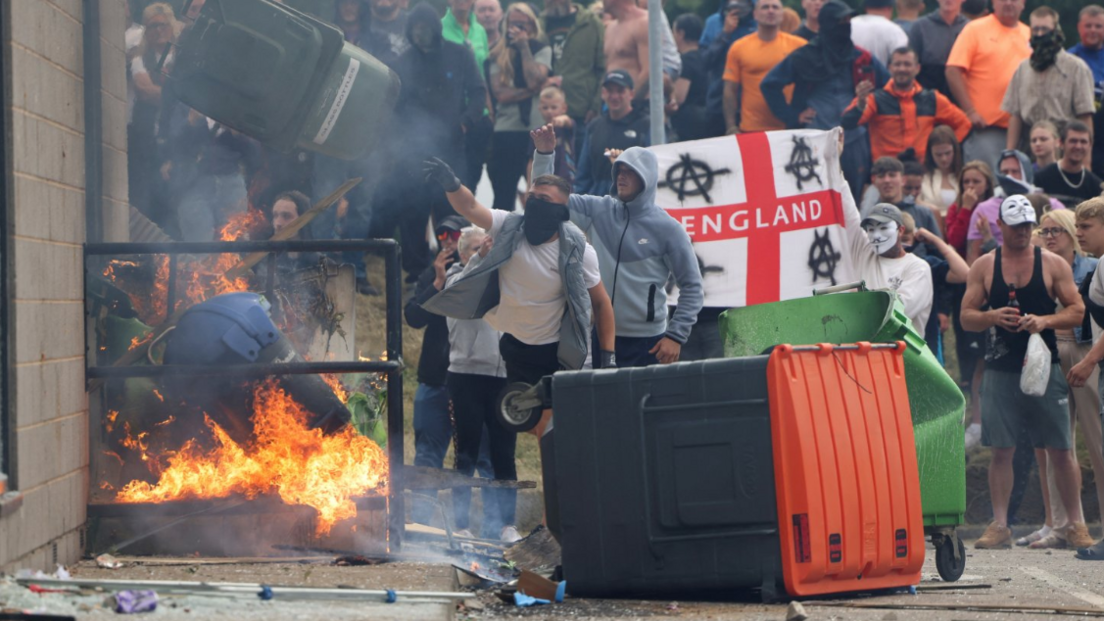
- Published4 August 2024
